 “Last night, Internet service for a number of our customers in the western part of the country was degraded or unavailable for several hours,” Comcast wrote on its blog this morning. “We had a team on this immediately, and were able to restore full service to most customers by 9pm PT.”
“Last night, Internet service for a number of our customers in the western part of the country was degraded or unavailable for several hours,” Comcast wrote on its blog this morning. “We had a team on this immediately, and were able to restore full service to most customers by 9pm PT.”
The cause of the failure – a defective piece of hardware – began that morning, which meant it took almost nine hours for Comcast to find the equipment responsible for eventually wiping out Internet service for millions of broadband customers up and down the west coast.
Most backbone networks, including Comcast’s, are designed to heal themselves and route traffic along alternate paths much like a detour would route automobile traffic around a street closed for construction.
One type of traffic that gets automatically rerouted is Domain Name System (DNS) traffic. Unfortunately, some of that traffic shifted in an unexpected way and overloaded local DNS server capacity causing many customers to experience service interruptions.
The worst of the outage affected most California, Oregon, and Washington customers between 6:30-9:30pm PT, but many reported poor service for at least six hours before that.
“Our condolences on the death of your Internet,” wrote Upgrade Seattle, an advocacy group trying to convince the city to run its own public gigabit Internet service to compete with Comcast. “This is why we need a strong, accountable municipal Internet service throughout Seattle.”
Comcast has offered to placate angry customers with a $5 service credit for the outage, but offered conflicting information about how customers will get it.
Comcast spokeswoman Jennifer Khoury claimed the company will “proactively send the credit to affected customers.”
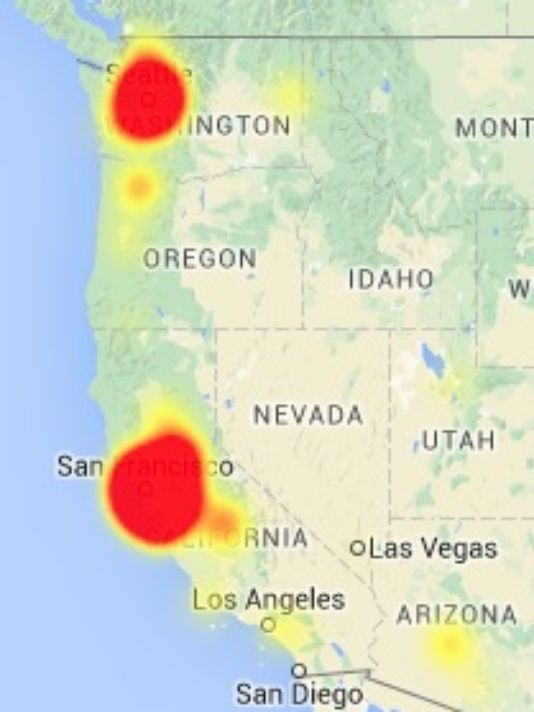
“Down Detector” shows the extent of Comcast’s latest service outage, which largely covers its entire service area in the states of Washington, Oregon, and the Bay Area region of California.
But other Comcast representatives, and the company’s own blog post, suggest otherwise.
Comcast’s policy states customer outage credits are not automatic, and callers to Comcast report customers must still ask for an outage credit to receive one.
“Comcast does not issue blanket service credits for outages,” reflects the policy of Comcast’s west coast divisions. The reason for that policy, according to Comcast spokesman Steve Kipp, is that Comcast prefers to work one-on-one with customers.
“You may have had somebody that may not have been home and did not even notice there was an outage,” Kipp offered. “Another customer may have lost valuable work time.”
But some people might be getting credits, if they got through to Comcast to complain about the outage as it happened.
“We are directly reaching out to those who reported problems last night to offer our apologies and a credit for lost service,” Comcast wrote on its blog this morning.
For everyone else:
“We are also building a Web site that impacted customers can visit to receive their credit. We will update this post with a link to that site as soon as it is available and will share the link on Twitter through our customer support handle @comcastcares.”
“Yeah, after we forget about it in a few days,” says Stop the Cap! reader Sarah Bowler who this morning asked us about the conflicting information coming out of Comcast. “You can’t live your life with Comcast without being ready to let go of their usual screw-ups after they are fixed or else you will become obsessed. They can’t get their billing right on a good day so I don’t believe for a second they will follow through with automatic credits. Go on record asking for that credit or you probably will never see it.”
Bowler tried calling 1-800-XFINITY (1-800-934-6489) but the lines were jammed, presumably with other callers looking for outage credits or information. She eventually got her credit using Comcast’s online support website. Customers can use live chat or try calling again later.
Seattle residents are particularly infuriated because this represents the second major outage since April, when a fiber optic cable cut wiped out service for 30,000 customers for nine hours, forcing some businesses to close for the day and 911 service to be disrupted for thousands because Comcast’s redundancy plan failed.
Customers there were also told they could receive credit, but it later turned out they received it only if they asked, and even then some claim they never got it.
“Comcast spends more time alienating their customers than they work on their service,” Bowler said.


 Subscribe
Subscribe It’s an acute case of broadband envy.
It’s an acute case of broadband envy.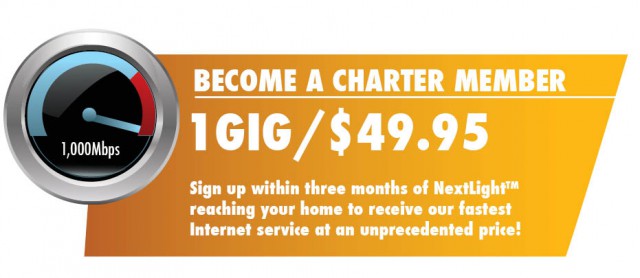 NextLight delivers a mortal blow to competitors by charging a fair price for fast service. Instead of spending to upgrade their networks to compete, the incumbents
NextLight delivers a mortal blow to competitors by charging a fair price for fast service. Instead of spending to upgrade their networks to compete, the incumbents 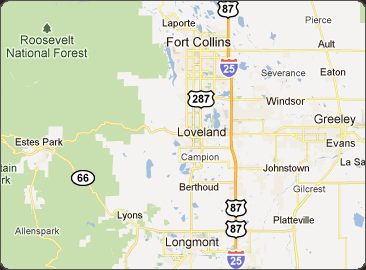
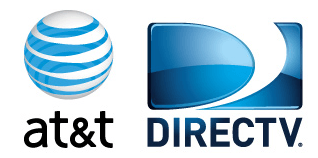 While consumer groups were busy fighting the Comcast-Time Warner Cable merger, AT&T’s $49 billion purchase of DirecTV has largely flown under the radar, with no comparable organized consumer opposition to the deal. But that does not mean the FCC will approve it as-is.
While consumer groups were busy fighting the Comcast-Time Warner Cable merger, AT&T’s $49 billion purchase of DirecTV has largely flown under the radar, with no comparable organized consumer opposition to the deal. But that does not mean the FCC will approve it as-is.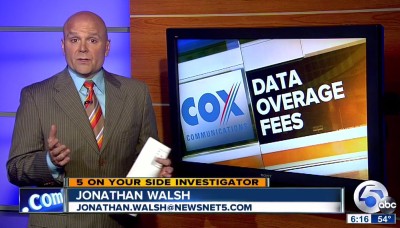 This weekend will end the first phase of our campaign to fight Cox usage caps being tested in Cleveland, Ohio. We’re collecting the names and e-mail addresses of interested citizens that would like to participate in the fight to get Cox to drop its usage-based billing and overlimit fee scheme. If you are interested, use the link at the top to “Contact Us” as a volunteer and include your name and a valid email address.
This weekend will end the first phase of our campaign to fight Cox usage caps being tested in Cleveland, Ohio. We’re collecting the names and e-mail addresses of interested citizens that would like to participate in the fight to get Cox to drop its usage-based billing and overlimit fee scheme. If you are interested, use the link at the top to “Contact Us” as a volunteer and include your name and a valid email address. “I thought I was watching Comedy Central,” said Ralph Wilson, a longtime Charter customer in suburban Los Angeles. He was actually watching a Bloomberg News interview with the CEO of Charter Communications regarding yesterday’s formal merger announcement. “What cable company was Thomas Rutledge talking about when he said Charter would bring better service to Time Warner and Bright House? Charter blows.”
“I thought I was watching Comedy Central,” said Ralph Wilson, a longtime Charter customer in suburban Los Angeles. He was actually watching a Bloomberg News interview with the CEO of Charter Communications regarding yesterday’s formal merger announcement. “What cable company was Thomas Rutledge talking about when he said Charter would bring better service to Time Warner and Bright House? Charter blows.”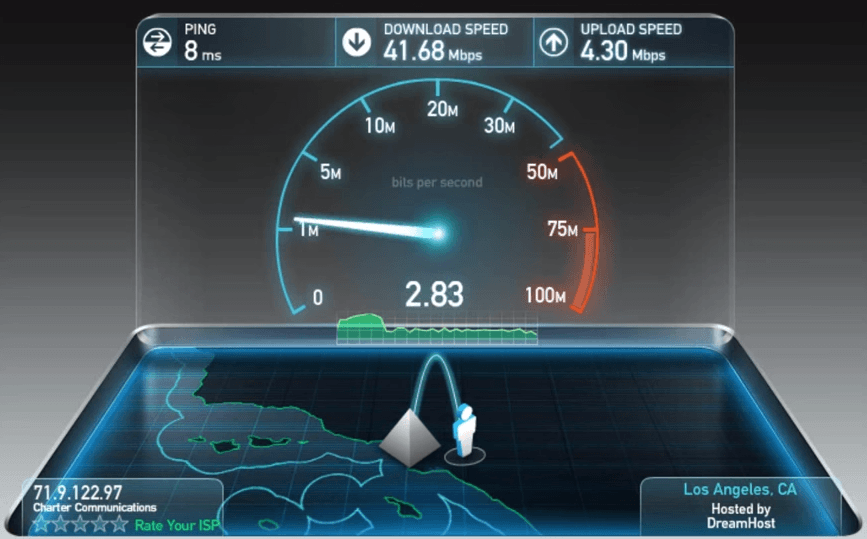
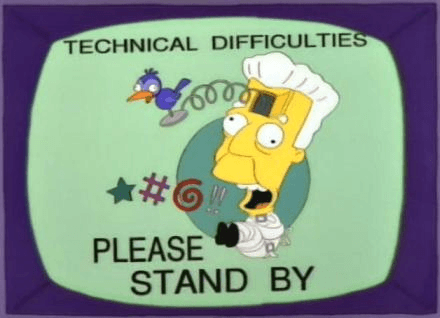 Turner has seen three cable companies come and go in her part of Montana since April 2002. Comcast sold many of its cable systems in the sparsely populated states of the Rockies to Bresnan Communications that year. Cablevision acquired Bresnan in 2010 and rebranded her cable system Optimum West. Just three years later, Cablevision sold all of its interests outside of the northeastern U.S. to Charter Communications, which runs things today.
Turner has seen three cable companies come and go in her part of Montana since April 2002. Comcast sold many of its cable systems in the sparsely populated states of the Rockies to Bresnan Communications that year. Cablevision acquired Bresnan in 2010 and rebranded her cable system Optimum West. Just three years later, Cablevision sold all of its interests outside of the northeastern U.S. to Charter Communications, which runs things today.